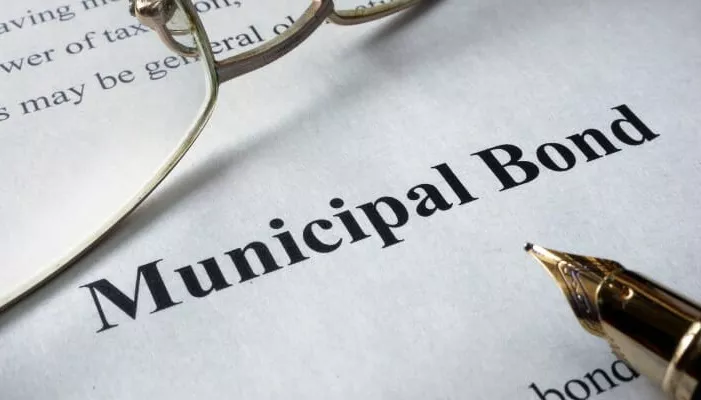Municipal bonds, often referred to as “munis,” are debt securities issued by state and local governments to finance public projects such as building schools, highways, or hospitals. They are an attractive investment option for many due to their tax-exempt status and relatively low risk. However, purchasing municipal bonds requires understanding the different types available, the methods of acquisition, and the associated risks. This article provides a comprehensive guide on how to buy municipal bonds, tailored for both novice and experienced investors.
What Are Municipal Bonds?
Municipal bonds are debt instruments issued by governmental entities to raise funds for public projects. There are two primary types:
- General Obligation Bonds (GO Bonds): These are backed by the full faith and credit of the issuing government, meaning they are supported by the issuer’s taxing power.
- Revenue Bonds: These are repaid from the revenue generated by the specific project they finance, such as tolls from a bridge or fees from a public utility.
Investors are typically attracted to municipal bonds because the interest income is often exempt from federal income taxes, and in some cases, state and local taxes, especially if the investor resides in the state where the bond is issued.
Benefits of Investing in Municipal Bonds
- Tax Advantages: Interest income may be exempt from federal, state, and local taxes.
- Low Default Risk: Municipalities generally have a lower default rate compared to corporations.
- Steady Income Stream: Bonds provide regular interest payments, which can be appealing for income-focused investors.
- Portfolio Diversification: Adding municipal bonds can help diversify an investment portfolio.
How to Buy Municipal Bonds
There are several methods to purchase municipal bonds, each catering to different investment strategies and preferences:
1. Through a Broker-Dealer
One of the most common ways to buy municipal bonds is through a broker-dealer. These financial professionals can help you select bonds that align with your investment goals and risk tolerance. When working with a broker, it’s important to:
- Understand Fees: Brokers may charge a markup or commission on the bonds they sell. Ensure you are aware of all associated costs.
- Review Bond Ratings: Check the credit ratings of the bonds to assess their risk level.
- Request Official Statements: These documents provide detailed information about the bond’s terms and the issuer’s financial health.
2. Direct Purchase from Issuers
Some municipalities offer bonds directly to investors through public offerings. This method may allow you to purchase bonds without intermediary fees. To buy directly:
- Monitor Issuance Dates: Keep an eye on announcements for upcoming bond issues.
- Participate in the Offering: Follow the procedures outlined by the issuing entity to submit your purchase request.
3. Municipal Bond Mutual Funds and ETFs
If you prefer a diversified approach without selecting individual bonds, consider investing in municipal bond mutual funds or exchange-traded funds (ETFs). These funds pool money from multiple investors to invest in a broad portfolio of municipal bonds. Benefits include:
- Diversification: Reduces the risk associated with individual bonds.
- Professional Management: Fund managers handle the selection and management of the bond portfolio.
- Liquidity: ETFs, in particular, can be bought and sold throughout the trading day.
4. Online Brokerage Platforms
Many online brokerage platforms allow investors to purchase municipal bonds directly. These platforms often provide tools to filter bonds by criteria such as credit rating, yield, and maturity date. When using online platforms:
- Compare Offerings: Evaluate different bonds to find those that meet your investment objectives.
- Understand Platform Fees: Be aware of any transaction fees or account maintenance charges.
- Utilize Research Tools: Leverage available resources to assess bond performance and issuer reliability.
Factors to Consider Before Purchasing Municipal Bonds
Before investing in municipal bonds, it’s crucial to evaluate several factors to ensure they align with your financial goals:
Credit Ratings
Credit ratings assess the likelihood that the bond issuer will be able to meet its debt obligations. Ratings are provided by agencies such as Moody’s, Standard & Poor’s, and Fitch. Higher ratings (e.g., AAA or Aaa) indicate lower risk, while lower ratings suggest higher risk.
Interest Rates
Municipal bonds are sensitive to changes in interest rates. When rates rise, bond prices typically fall, and vice versa. Consider the current interest rate environment and how it may impact your bond investments.
Tax Implications
While municipal bond interest is often tax-exempt, it’s essential to understand the specific tax benefits based on your residency and the bond’s origin. Some bonds may be subject to the Alternative Minimum Tax (AMT) or taxable at the state level.
Investment Horizon
Determine how long you plan to hold the bond. Some bonds may be callable, meaning the issuer can redeem them before maturity, potentially affecting your investment strategy.
Risks Associated with Municipal Bonds
While municipal bonds are generally considered safe investments, they are not without risks:
- Credit Risk: The possibility that the issuer may default on its obligations.
- Interest Rate Risk: Changes in interest rates can affect bond prices and yields.
- Liquidity Risk: Some municipal bonds may be difficult to sell quickly without affecting the price.
- Call Risk: Issuers may redeem bonds before maturity, potentially leading to reinvestment at lower rates.
Conclusion
Investing in municipal bonds can be a prudent way to generate tax-free income while supporting public projects. By understanding the different methods of purchasing bonds, evaluating key factors such as credit ratings and tax implications, and being aware of associated risks, you can make informed investment decisions. Whether you choose to buy individual bonds, invest in bond funds, or utilize online platforms, ensure that your investment strategy aligns with your financial goals and risk tolerance.
Related topics:


